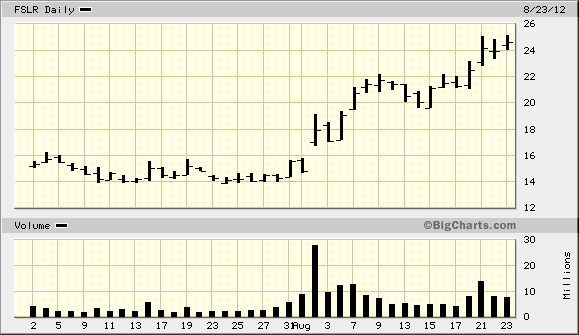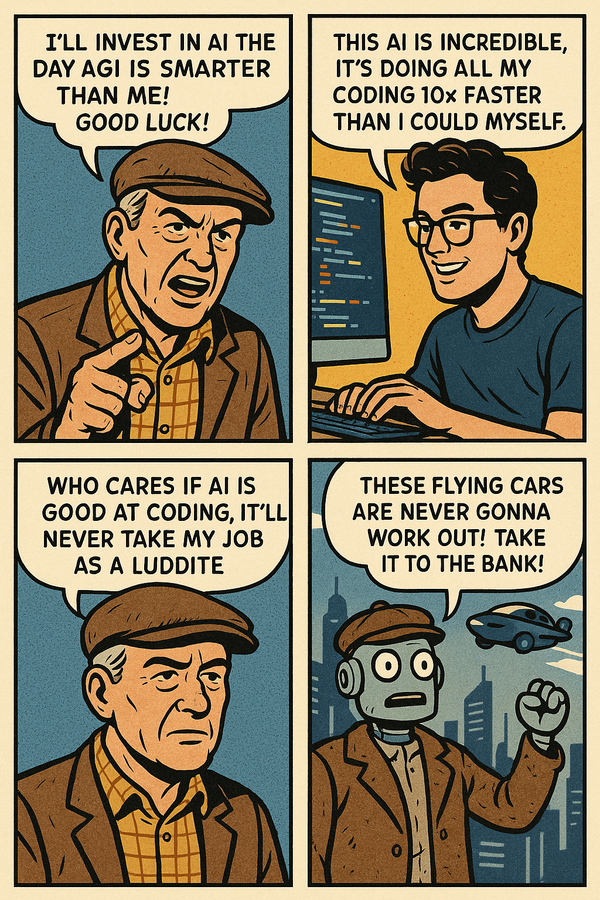2 Huge Mistakes Investors Make When Shorting

Shorting is like David Bowie said: It Ain’t Easy
http://grooveshark.com/s/It+Ain+t+Easy/4IiKls?src=5
Let’s run an experiment. Turn on CNBC or Bloomberg or my old home Fox Business right now and watch for ten minutes. Count the number of stock recommendations and keep track of the number of short recommendations. I’ll wait.
Are you back. Was there even a single one? No? That’s because financial networks have a different risk/reward than investors. They can mention a million long ideas and some will hit and some people watching will make some money. But if a guest mentions a short idea and it runs against the long-time viewers who are first-time shorters, you better better believe there’s going to be hell to pay. The networks want a constant flow of mediocre ideas for the stock-picking grist mill, not short picks. When an investor loses money going long it’s the Wall Street casino that robbed them. When that same investor loses money going short it’s the fault of the person that made the recommendation.
So idiot that I am I wrote a book about stocks to short. In January I released “The Dirty Dozen: 12 Stocks with Broken Business Model” (free to all TradingWithCody subscribers, a service not affiliated with Marketwatch). Since it’s always, always, ALWAYS better to short companies that are doomed rather than ones that have just run up a lot, I figured a list of trading ideas that fit this criteria would be useful. I’ve been emailing with readers who bought the book and I thought I’d run through some of the biggest mistakes I see novice shorters making.
1. Ignoring the short-interest
This is a big one. Short interest is the ratio of the float that is sold short. I hate shorting stocks with a high short interest because I hate all crowded trades. When a stock is already highly shorted any little piece of good news can make it rocket upwards. Why? Because most short-ers don’t have real conviction and they get nervous that they are wrong. When they get nervous they close out their position. When lots of shorts try and close out their position at once, and they buy the stock back, the price gets pushed up really fast really quickly. That’s called a short squeeze and I hate being in the middle of those. If I see a stock I’d like to short that is fundamentally damaged with a high short ratio, I wait till some of the less-convinced shorts are pushed out and I take advantage of their misfortune.
Let’s look at the example of First Solar FSLR. The company recently beat earnings and beat expectations. From BusinessWeek:
Net income was $111 million, or $1.27 a share, compared with $61.1 million, or 70 cents, a year earlier, the Tempe, Arizona-based company said today in a statement. Excluding restructuring charges, earnings were $1.65 a share, 71 cents more than the average of 27 analysts’ estimates compiled by Bloomberg.
Sales increased 80 percent to $957.3 million, largely from selling utility-scale power projects to companies such as Exelon Corp. and Enbridge Inc. (ENB)
And here’s what the stock did, look at the volume and pop on August 3rd:

That’s a massive 30% rally and an unbearable 30% loss for anyone who put on the position the day before. This is a purely mechanical thing to pay attention to, solar is still a subsidized federal boondoggle and FSLR is selling a product whose price will keep declining even if they make money on the installation. Let me be clear, I have never not shorted something because the short interest is too high. But unless you are a hedge fund or have access to permanent capital, losing 30% in one day on a short will shake almost every investor out of the trade. Be realistic about how you will react if a trade goes against you, and know that trades will go against you in worse ways than you could ever imagine. If you don’t believe me ask David Einhorn of Greenlight GLRE about shorting Porsche. If you don’t pay attention to the short-ratio and didn’t recognize that 48% of FSLR’s float was sold short you would have gotten walloped. Shorting stocks with high short-interests like Skullcandy SKUL and MagicJack CALL is one of the worst things you can do if you get scared easily.
2. Getting pushed out of short because someone got in your ear
With apologies to my former Financial Times colleague Whitney Tilson I’m going to pick on his experience with Netflix NFLX.
Here’s what Whitney said back in December 2010 about his hedge fund’s postion :
We’ve lost a lot of money betting against Netflix (NFLX), which is currently our largest bearish bet, in the form of both a short and put position. In this letter, we share our investment thesis in depth and describe why, at a stock price of $178.50 and a market cap of $9.3 billion (based on yesterday’s close), we think it’s an exceptional short idea.
…
We don’t think there are any easy answers for Netflix. It is already having to pay much more for streaming content and may soon have to pay for bandwidth usage as well, which will result in both margin compression (Netflix’s margins are currently double Amazon’s) and also increased prices to its customers, which will slow growth.
Under this scenario, Netflix will continue to be a profitable and growing company, but not nearly profitable and rapidly growing enough to justify today’s stock price, which is why we believe it will fall dramatically over the next year.
Hope you actually read that because Tilson’s analysis has all the parts of a good short: the company is faltering, the stock is overpriced, and you have a timeline for your idea to play out. Enter Netflix CEO and Tilson friend Reed Hastings:
A great investor and a wonderful human being, Whitney Tilson recently posted an article about why he is short Netflix (NFLX). Whitney, who is a major co-donor with me to charter public schools like KIPP, writes that he has lost money betting against Netflix, and that he is still short Netflix in a big way.
Hastings then lays out a lengthy retort, taking Tilson point-by-point ending with:
To wrap up, I have to agree with my friend Whitney that there are many risks ahead for Netflix, that our valuation is substantial, and that it is possible that one could make money shorting Netflix today. But shorting a market leading firm as it is driving a huge new market is a very gutsy call. On balance, I would rather have my co-philanthropists on the long side of this particular bet.
Two months later, Tilson capitulated:
In mid-December, we published a lengthy article on why Netflix was our largest bearish bet at the time. With the stock up nearly 25% since then, one might assume that we’d think it’s an even better short today, but in fact we have closed out our position because we are no longer confident that our investment thesis is correct.
At today’s closing price of $222.29, Netflix is trading at 75.0x trailing EPS of $2.96. In more than 12 years of managing money professionally, we can’t recall an instance in which we paid more than 20x our estimate of normalized, current year earnings for any stock – and this has worked very well for us – so we won’t be buying Netflix anytime soon. But just because we don’t think it’s a good long doesn’t make it a good short.
We all know what came next. Netflix got destroyed, for many of the reasons Tilson had laid out, and his investors didn’t profit. Here is Whitney talking to Forbes in October of last year about missing out on his own idea:
“If you go back and read our original Netflix piece, we pretty well nailed it,” Tilson told me. “But we were quite early – we were almost a year early. So we got clobbered to the point that we couldn’t take the pain, and we just said, ‘You know what? There are better shorts out here.’ So we covered and got out.”
“Watching our investment thesis eventually play out and not participating in it has been very annoying,” he said.
Netflix from Jan 1st 2010 through today
“Very annoying” is probably putting it mildly, just ask the analysts at my hedge fund how I reacted when anything like this happened. And anybody who’s ever shorted a stock has been there — I certainly mean no disrespect to my old buddy Whitney. Now maybe you aren’t cozy with CEOs but at some point someone is going to mock you for losing money on a short they are making money on from the long side. Ignore the sentiment and drill into their argument. Don’t let the crowd push you out of your best ideas. And know that shorting is a totally different beast than going long.
No trades for me today. If you wanted to buy Google or Apple on a pullback, you might do a small first tranche or so while they’re down, but leave yourself room to buy more on any further weakness too.




